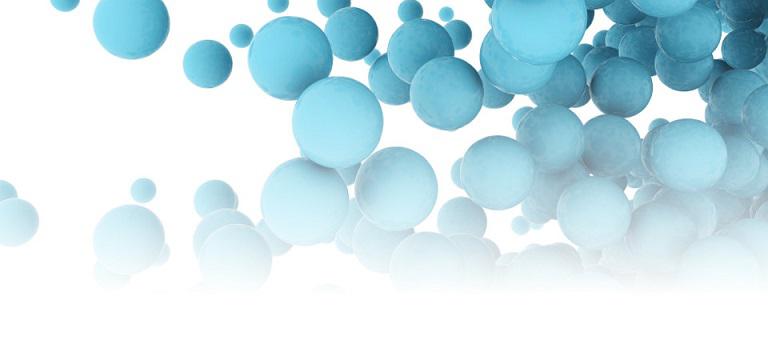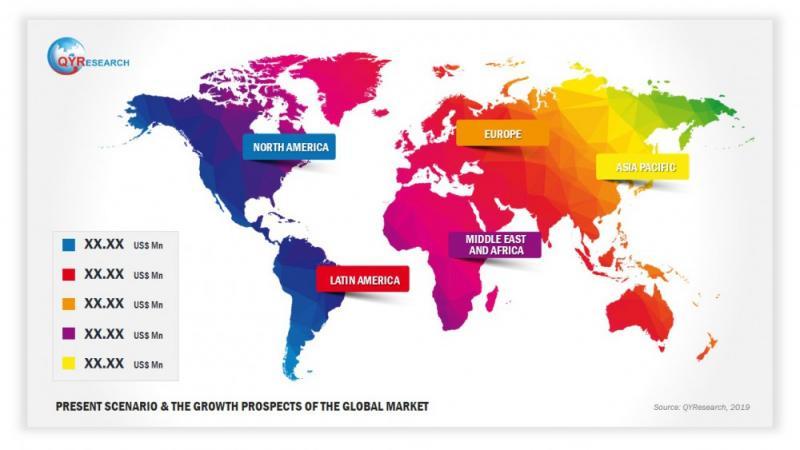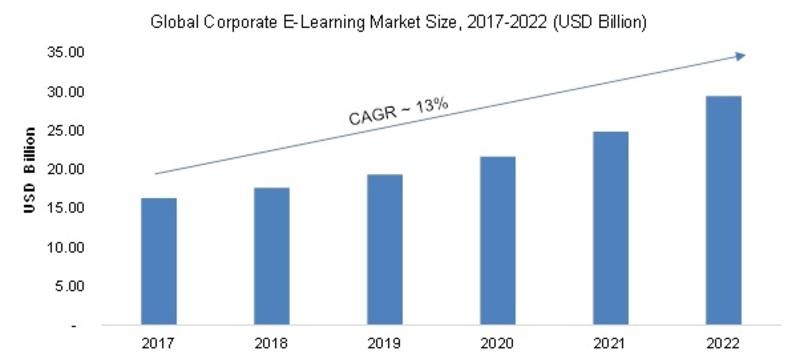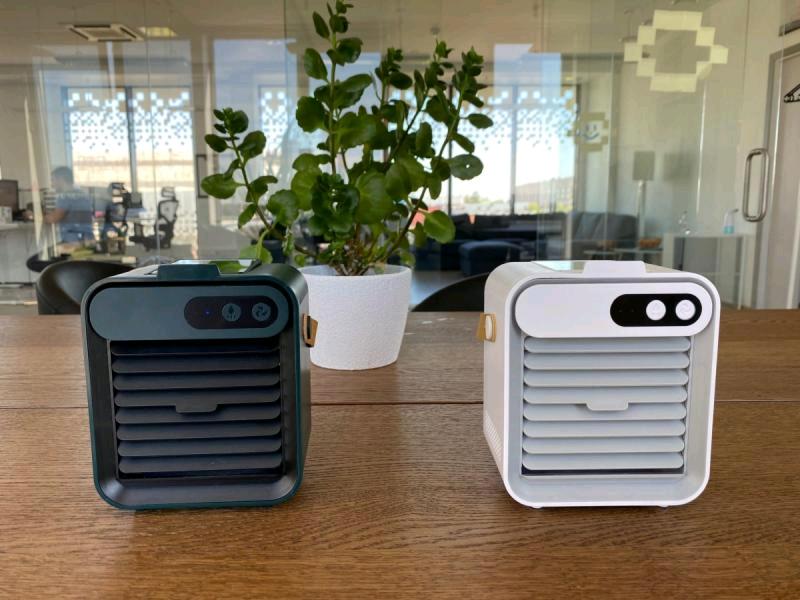Press release
Summer 2022: The Effects Of Traditional Air Conditioners
Heat is indeed a chaotic reality. The higher the temperature of something, the greater the amount of kinetic energy it has: molecules vibrate, relationships shift, life overheats, and things perish.
SUMMER 2021 - A REPORT
Right now, you can see it in the western horizon. Last week, a heat dome formed over the Great Plains, stretching all the way out to the California coast and back in again today. Heat records were broken in Salt Lake City when it reached 107°F, the highest temperature ever recorded there. At night in Las Vegas, the temperature reached more than 100 degrees. Phoenix experienced temperatures of at least 115°F for five consecutive days, setting a new record for the city. Although it is difficult to follow the health consequences of heat waves in real time, public-health officials in the Phoenix area are currently examining the heat-related fatalities of nine people in a single day (June 17th, 2021). Even more heat is predicted for this week, for the rest of the summer, and for many years to come, as long as the globe continues to consume fossil fuels. While this may seem like a brutal bootcamp, it is nothing compared to what we will be subjected to in the not-too-distant future.
SAVE YOURSELF FROM THE SUMMER HEATWAVE WITH THIS PORTABLE AC: https://bit.ly/BUY-COOLEDGE-AC-TODAY
THE GLOBAL EFFECT OF HEAT SO FAR
Heat triggers a chain reaction of climatic mayhem that cascades down the line. It draws moisture from the soil; drier ground results in less evaporation, which results in fewer clouds and more sun, which results in greater heat and evaporation. This is the lowest level of Lake Mead since the 1930s, when it served as a reservoir on the Arizona-Nevada border that provided drinking water to 25 million people and generated energy for an additional eight million. With heat and drought comes the possibility of fire. Wildfires were engulfing California, Utah, New Mexico, Arizona, and Montana on the first day of summer, according to the National Fire Protection Association. Heat has an effect on the movement of insects that carry infectious diseases. It is responsible for melting the last of the snowpack. As for the rest of us, heat causes our hearts to beat faster, directing blood toward our skin, where it can be cooled by sweating. The proteins in your body begin to unfurl as a result of excessive heat; your gut begins to leak noxious substances into your rapidly warming blood; and if you don't cool down immediately, you will die as a result of the rapid increase in temperature.
HOW HOT IS THE EARTH?
The warmth that is causing pavement to melt in the western United States is unassailably linked to the climate problem. While the Earth as a whole has warmed by a little more than 1 degree Celsius already, the land surface, where we all dwell, has warmed by nearly 2 degrees Celsius. According to Michael Wehner, a senior scientist at Lawrence Berkeley National Laboratory, today's heat waves are 3° to 5°F hotter than they would be if CO2 pollution, which is primarily caused by the combustion of fossil fuels, were not contributing to the increased temperature. Furthermore, the more CO2 we release into the atmosphere, the hotter it will get.
SAY NO TO SUMMER HEAT THIS YEAR: CLICK HERE: https://bit.ly/BUY-COOLEDGE-AC-TODAY
THE USE OF TRADITIONAL AIR CONDITIONERS: The Risk
Long before that, the most noticeable effect of excessive heat is that it causes people to switch on - and turn up - their air conditioning. When you breathe in fresh air, you may feel the confusion within you dissipate. However, there is a price to pay: AC consumes enormous amounts of electricity, putting a strain on the grid and increasing the likelihood of blackouts. In addition to increasing electricity use, fossil fuel combustion increases CO2 emissions (President Biden has promised a 100 percent clean electrical grid by 2035, but that is still a long way off). Furthermore, hydrofluorocarbons (HFCs), the man-made chemicals found inside air conditioners that are used to chill the air, are super greenhouse gases, capable of trapping up to 3,000 times more heat in the atmosphere than CO2. So, to summarize, cooling ourselves off runs the risk of causing our own deaths by overcooking our bodies.
The demand for air conditioning is expected to rise rapidly in response to the global warming trend, particularly in developing countries where air conditioning is still considered a luxury that only a small percentage of the population can afford. Right today, there are slightly more than 1 billion single-room air conditioning units in use around the world, or about one for every seven people on the planet. More than 4.5 billion devices are expected to be produced by 2050, making them as prevalent as telephones are now.
These actions have far-reaching implications. A traditional air conditioner cooling a single room can consume more energy than four freezers running at the same time. The United States already consumes as much electricity for air cooling as the United Kingdom does in total each year. In a few decades, the International Energy Agency predicts that air conditioning would account for almost 13 percent of all power consumed worldwide and produce 2 billion tons of CO2 per year - roughly the same amount as India, the world's third-largest polluter, already produces.
The use of HFCs in air conditioning equipment only serves to exacerbate the problem. At the moment, HFC emissions account for around 1% of global greenhouse gas emissions, with some wealthy countries reporting as high as 3% of global emissions. In the absence of action, the International Energy Agency (IEA) predicts that these emissions will rise to 7-19 percent of total greenhouse gas emissions by 2050, canceling out most, if not all, of the mitigation steps pledged by countries to date.
As the use of air conditioning increases, the likelihood of brownouts and blackouts increases as well. During heatwaves, the demand for electricity increases dramatically, putting the whole grid's stability at danger. Furthermore, when the power goes out on a hot day, people perish. "[In 2018] during a heatwave in Beijing, 50 percent of the city's electrical capacity was dedicated to air conditioning," John Dulac, an analyst with the International Energy Agency, told the Guardian. "These are 'oh, shit' moments," says the author.
Even in the absence of blackouts, greater temperatures result in increased electric costs as air conditioning units struggle to keep up with the rising temperatures. In a recent tweet, Andrew Dessler, a climate scientist at Texas A&M University, stated that if you wish to chill your house to 75°F and the outside temperature climbs from 95°F to 98°F, that small difference implies you will require 1.3x more energy to cool your property. Just a 3-degree increase in temperature results in a 30 percent increase in power use, resulting in a 30 percent increase in electricity bill.
The answer to this cascade of heat-driven catastrophe is: we don't know. The most obvious solution is to cease using fossil fuels. For all intents and purposes, when carbon emissions reach zero, global warming will come to an end, and the temperature of the atmosphere will return to its normal level (they will stay at that level until CO2 levels fall, which, barring the massive deployment of some new technology that can suck CO2 out of the atmosphere, will take many hundreds of years). However, given that we are not likely to live in a zero-carbon future anytime soon, boosting the efficiency of air conditioning equipment, as well as researching and commercializing new technologies to chill the air without hurting the environment, can be beneficial (in the U.S., new efficiency standards for AC units will take effect in 2023). Heat pumps, which may be used to both heat and cool buildings, can be an excellent choice in some situations. In addition, the winners of a $1 million Global Cooling Prize were revealed earlier this year, demonstrating revolutionary technology that promises to have five times less impact on the environment than typical air conditioning equipment.
THIS AIR COOLER IS A PERFECT CHOICE TO AVOID EXTREME HEAT THIS SUMMER: https://bit.ly/BUY-COOLEDGE-AC-TODAY
SOLUTIONS TO SUMMER HeatWave IN 2022?
There are, however, more straightforward options. Last week, the prestigious medical magazine Lancet published a report that went completely unnoticed on a simple piece of technology that can do a great deal to alleviate the issues associated with excessive heat: the electric fan and portable ACs.
Fans, as we all know, have been used for ages to circulate air and make you feel cooler by moving it about (in China, hand fans date back to the 8th century). Electric fans, on the other hand, have had a terrible rap in recent years. According to the Environmental Protection Agency, "portable electric fans are not the straightforward cooling solution that they appear to be." According to the World Health Organization, "in extreme heat, fans can contribute to the level of heat stress, particularly when ambient humidity is high." According to the World Health Organization, "There is no scientific consensus on the efficacy of fans."
GET ONE TODAY HERE: https://bit.ly/BUY-COOLEDGE-AC-TODAY
PORTABLE ACs
Portable ACs use thermoelectric theory to cool the air in, making it the most effective and environmentally friendly form of air conditioning. It lowers the air temperature by causing evaporation and then cooling. It accomplishes this by integrating the functions of a humidifier and an air conditioner into one box of air. Portable AC is twenty times more energy effective than conventional devices that rest on walls or windows and are more conservative than almost every other portable AC on the market.
CONCLUSION
Electric fans and portable ACs will not be able to address the climate catastrophe on their own. However, it is comforting to know that there are simple strategies to de-stress that do not exacerbate the situation. Given what we know about the dangers we are now facing, it is unlikely that we would roast ourselves to death. It is all up to us.
Getting an air cooler could save you from this ugly incident of extreme heat. Act now and save yourself and your friends and family.
Summer is around the corner. Heatwave is coming but you've to brace up for the challenge.
SUMMER 2021 - A REPORT
Right now, you can see it in the western horizon. Last week, a heat dome formed over the Great Plains, stretching all the way out to the California coast and back in again today. Heat records were broken in Salt Lake City when it reached 107°F, the highest temperature ever recorded there. At night in Las Vegas, the temperature reached more than 100 degrees. Phoenix experienced temperatures of at least 115°F for five consecutive days, setting a new record for the city. Although it is difficult to follow the health consequences of heat waves in real time, public-health officials in the Phoenix area are currently examining the heat-related fatalities of nine people in a single day (June 17th, 2021). Even more heat is predicted for this week, for the rest of the summer, and for many years to come, as long as the globe continues to consume fossil fuels. While this may seem like a brutal bootcamp, it is nothing compared to what we will be subjected to in the not-too-distant future.
SAVE YOURSELF FROM THE SUMMER HEATWAVE WITH THIS PORTABLE AC: https://bit.ly/BUY-COOLEDGE-AC-TODAY
THE GLOBAL EFFECT OF HEAT SO FAR
Heat triggers a chain reaction of climatic mayhem that cascades down the line. It draws moisture from the soil; drier ground results in less evaporation, which results in fewer clouds and more sun, which results in greater heat and evaporation. This is the lowest level of Lake Mead since the 1930s, when it served as a reservoir on the Arizona-Nevada border that provided drinking water to 25 million people and generated energy for an additional eight million. With heat and drought comes the possibility of fire. Wildfires were engulfing California, Utah, New Mexico, Arizona, and Montana on the first day of summer, according to the National Fire Protection Association. Heat has an effect on the movement of insects that carry infectious diseases. It is responsible for melting the last of the snowpack. As for the rest of us, heat causes our hearts to beat faster, directing blood toward our skin, where it can be cooled by sweating. The proteins in your body begin to unfurl as a result of excessive heat; your gut begins to leak noxious substances into your rapidly warming blood; and if you don't cool down immediately, you will die as a result of the rapid increase in temperature.
HOW HOT IS THE EARTH?
The warmth that is causing pavement to melt in the western United States is unassailably linked to the climate problem. While the Earth as a whole has warmed by a little more than 1 degree Celsius already, the land surface, where we all dwell, has warmed by nearly 2 degrees Celsius. According to Michael Wehner, a senior scientist at Lawrence Berkeley National Laboratory, today's heat waves are 3° to 5°F hotter than they would be if CO2 pollution, which is primarily caused by the combustion of fossil fuels, were not contributing to the increased temperature. Furthermore, the more CO2 we release into the atmosphere, the hotter it will get.
SAY NO TO SUMMER HEAT THIS YEAR: CLICK HERE: https://bit.ly/BUY-COOLEDGE-AC-TODAY
THE USE OF TRADITIONAL AIR CONDITIONERS: The Risk
Long before that, the most noticeable effect of excessive heat is that it causes people to switch on - and turn up - their air conditioning. When you breathe in fresh air, you may feel the confusion within you dissipate. However, there is a price to pay: AC consumes enormous amounts of electricity, putting a strain on the grid and increasing the likelihood of blackouts. In addition to increasing electricity use, fossil fuel combustion increases CO2 emissions (President Biden has promised a 100 percent clean electrical grid by 2035, but that is still a long way off). Furthermore, hydrofluorocarbons (HFCs), the man-made chemicals found inside air conditioners that are used to chill the air, are super greenhouse gases, capable of trapping up to 3,000 times more heat in the atmosphere than CO2. So, to summarize, cooling ourselves off runs the risk of causing our own deaths by overcooking our bodies.
The demand for air conditioning is expected to rise rapidly in response to the global warming trend, particularly in developing countries where air conditioning is still considered a luxury that only a small percentage of the population can afford. Right today, there are slightly more than 1 billion single-room air conditioning units in use around the world, or about one for every seven people on the planet. More than 4.5 billion devices are expected to be produced by 2050, making them as prevalent as telephones are now.
These actions have far-reaching implications. A traditional air conditioner cooling a single room can consume more energy than four freezers running at the same time. The United States already consumes as much electricity for air cooling as the United Kingdom does in total each year. In a few decades, the International Energy Agency predicts that air conditioning would account for almost 13 percent of all power consumed worldwide and produce 2 billion tons of CO2 per year - roughly the same amount as India, the world's third-largest polluter, already produces.
The use of HFCs in air conditioning equipment only serves to exacerbate the problem. At the moment, HFC emissions account for around 1% of global greenhouse gas emissions, with some wealthy countries reporting as high as 3% of global emissions. In the absence of action, the International Energy Agency (IEA) predicts that these emissions will rise to 7-19 percent of total greenhouse gas emissions by 2050, canceling out most, if not all, of the mitigation steps pledged by countries to date.
As the use of air conditioning increases, the likelihood of brownouts and blackouts increases as well. During heatwaves, the demand for electricity increases dramatically, putting the whole grid's stability at danger. Furthermore, when the power goes out on a hot day, people perish. "[In 2018] during a heatwave in Beijing, 50 percent of the city's electrical capacity was dedicated to air conditioning," John Dulac, an analyst with the International Energy Agency, told the Guardian. "These are 'oh, shit' moments," says the author.
Even in the absence of blackouts, greater temperatures result in increased electric costs as air conditioning units struggle to keep up with the rising temperatures. In a recent tweet, Andrew Dessler, a climate scientist at Texas A&M University, stated that if you wish to chill your house to 75°F and the outside temperature climbs from 95°F to 98°F, that small difference implies you will require 1.3x more energy to cool your property. Just a 3-degree increase in temperature results in a 30 percent increase in power use, resulting in a 30 percent increase in electricity bill.
The answer to this cascade of heat-driven catastrophe is: we don't know. The most obvious solution is to cease using fossil fuels. For all intents and purposes, when carbon emissions reach zero, global warming will come to an end, and the temperature of the atmosphere will return to its normal level (they will stay at that level until CO2 levels fall, which, barring the massive deployment of some new technology that can suck CO2 out of the atmosphere, will take many hundreds of years). However, given that we are not likely to live in a zero-carbon future anytime soon, boosting the efficiency of air conditioning equipment, as well as researching and commercializing new technologies to chill the air without hurting the environment, can be beneficial (in the U.S., new efficiency standards for AC units will take effect in 2023). Heat pumps, which may be used to both heat and cool buildings, can be an excellent choice in some situations. In addition, the winners of a $1 million Global Cooling Prize were revealed earlier this year, demonstrating revolutionary technology that promises to have five times less impact on the environment than typical air conditioning equipment.
THIS AIR COOLER IS A PERFECT CHOICE TO AVOID EXTREME HEAT THIS SUMMER: https://bit.ly/BUY-COOLEDGE-AC-TODAY
SOLUTIONS TO SUMMER HeatWave IN 2022?
There are, however, more straightforward options. Last week, the prestigious medical magazine Lancet published a report that went completely unnoticed on a simple piece of technology that can do a great deal to alleviate the issues associated with excessive heat: the electric fan and portable ACs.
Fans, as we all know, have been used for ages to circulate air and make you feel cooler by moving it about (in China, hand fans date back to the 8th century). Electric fans, on the other hand, have had a terrible rap in recent years. According to the Environmental Protection Agency, "portable electric fans are not the straightforward cooling solution that they appear to be." According to the World Health Organization, "in extreme heat, fans can contribute to the level of heat stress, particularly when ambient humidity is high." According to the World Health Organization, "There is no scientific consensus on the efficacy of fans."
GET ONE TODAY HERE: https://bit.ly/BUY-COOLEDGE-AC-TODAY
PORTABLE ACs
Portable ACs use thermoelectric theory to cool the air in, making it the most effective and environmentally friendly form of air conditioning. It lowers the air temperature by causing evaporation and then cooling. It accomplishes this by integrating the functions of a humidifier and an air conditioner into one box of air. Portable AC is twenty times more energy effective than conventional devices that rest on walls or windows and are more conservative than almost every other portable AC on the market.
CONCLUSION
Electric fans and portable ACs will not be able to address the climate catastrophe on their own. However, it is comforting to know that there are simple strategies to de-stress that do not exacerbate the situation. Given what we know about the dangers we are now facing, it is unlikely that we would roast ourselves to death. It is all up to us.
Getting an air cooler could save you from this ugly incident of extreme heat. Act now and save yourself and your friends and family.
Summer is around the corner. Heatwave is coming but you've to brace up for the challenge.
Permanent link to this press release:
Copy
Please set a link in the press area of your homepage
to this press release on woodPRI. woodPRI disclaims liability for any content contained in
this release.
Recommend

/newsMicroencapsulation Market Deep Analysis on Key Players - Dow Corning, Encapsys, Syngenta Crop Protection, Evonik Industries, 3M and Bayer
Market Study Report Adds Global Microencapsulation Market Size, Status and Forecast 2024 added to its database. The report provides key statistics on the current state of the industry and other analytical data to understand the market.
Extensive research is required for choosing the appropriate cor...

/newsGermany Airbag Market Size 2023: Global Share, Industry And Report Analysis By 2030 | Hyundai Mobis Co., Ltd. Key Safety Systems, Inc. Robert Bosch GmbH
Germany airbag market is expected to grow at a CAGR of around 6% during the forecast period. Germany Airbag Market research report refers to gathering and analyzing significant market data serve as best medium for various industry players to launch novel product or service. It is vital for key firms...

/newsSecurities Brokerages And Stock Exchanges Market Outlook 2021: Big Things are Happening
A new intelligence report released by HTF MI with title "Global Securities Brokerages And Stock Exchanges Market Survey & Outlook" is designed covering micro level of analysis by Insurers and key business segments, offerings and sales channels. The Global Securities Brokerages And Stock Exchange...

/newsRenewable Chemicals Market Emerging Trends and Competitive Landscape Forecast to 2028
The renewable chemicals market was valued at US$ 80,566.30 million in 2021 and is projected to reach US$ 1,76,750.76 million by 2028 it is expected to grow at a CAGR of 11.9% from 2021 to 2028. The research report focuses on the current market trends, opportunities, future potential of the market, a...

/newsHow Coronavirus is Impacting Cold Brew Coffee, Global Market Volume Analysis, Size, Share and Key Trends 2020-2026
"Market Latest Research Report 2020:
Los Angles United States, February 2020: The Cold Brew Coffee market has been garnering remarkable momentum in the recent years. The steadily escalating demand due to improving purchasing power is projected to bode well for the global market. QY Research's lates...

/newsCorporate E-Learning Market - Global Industry Size, Share, Key Players Analysis that are Infor, SkillSoft Corporation, Adrenna, CERTPOINT Systems and others with Regional Forecast to 2022
Overview:
E-Learning is used to enhance the learning procedures for newer job requirements and to make employees sound about the internal and external changes in the market and respective organizations. This method has created considerable differences in the ways of training and developing employee...
